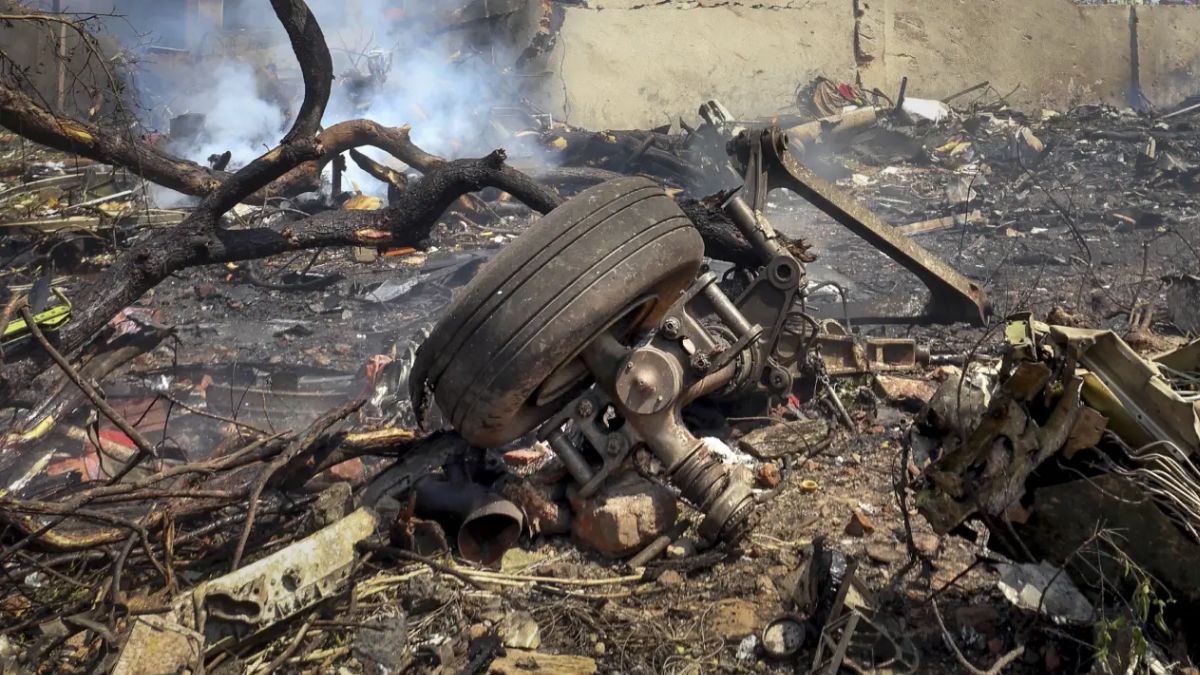The Aircraft Accident Investigation Bureau (AAIB) on Saturday released its preliminary report on the crash of Air India flight to London, revealing that the mishap occurred after both engines had shut down seconds after takeoff.
Air India’s Boeing 787-8 plane that was operating flight AI 171 from Ahmedabad to London Gatwick on June 12, crashed seconds after takeoff, killing a total of 260 people, including many on the ground.
The 15-page-long report also noted that Engine 1 and Engine 2 fuel cutoff switches transitioned from RUN to CUTOFF within one second of each other. This means the engines of the aircraft were completely starved of fuel supply.
The AAIB said that wreckage from the accident site, including drone photography and videography, has been retrieved and moved to a secured area near the airport in Ahmedabad.
Airborne for only 32 seconds
The Boeing aircraft was airborne for only 32 seconds after takeoff and travelled only 0.9 nautical miles before crashing into the BJ Medical College Hostel located near the airport.
The report notes that the aircraft achieved a maximum airspeed of 180 Knots, following which the two engines’ cutoff switches transitioned from RUN to CUTOFF immediately.
It stated that although the thrust levers were found near the idle position, black box data showed they remained in the forward position until impact. Both fuel control switches were also set to ‘RUN’.
RAT deployed after takeoff
AAIB said that based on CCTV footage at the scene, the Ram Air Turbine (RAT) was deployed after the initial climb immediately after takeoff, suggesting a total loss of power thrust in the aircraft.
The pilots attempted to restart the engines. While Engine 1 (N1) partially recovered, Engine 2 failed to restart before impact. The aircraft remained airborne for just 32 seconds before crashing into a hostel, approximately 0.9 nautical miles from the runway.
Impact Shorts
More ShortsMeanwhile, after discovering that the cutoff switches had been transitioned, one pilot can be heard asking the other, “Why did you cut off?” to which the second pilot responds that he did not, the cockpit voice recorder revealed.
No report of sabotage
AAIB has highlighted that the initial probe into the crash has not provided any evidence for a possible sabotage.
Samples of the fuel from bowsers and tanks of the aircraft were sent to the DGCA’s lab for testing and were found fit for use.
The report noted that weather conditions at the time of the crash were normal, with clear skies, good visibility, and light winds. It also confirmed that the pilots were medically fit, well-rested, and had sufficient experience flying the aircraft type.
AI responds to report
Air India wrote on X, “Air India stands in solidarity with the families and those affected by the AI171 accident. We continue to mourn the loss and are fully committed to providing support during this difficult time. We acknowledge receipt of the preliminary report released by the Aircraft Accident Investigation Bureau (AAIB) today, 12 July 2025.”
Air India stands in solidarity with the families and those affected by the AI171 accident. We continue to mourn the loss and are fully committed to providing support during this difficult time.
— Air India (@airindia) July 11, 2025
We acknowledge receipt of the preliminary report released by the Aircraft Accident…


)

)
)
)
)
)
)
)
)



